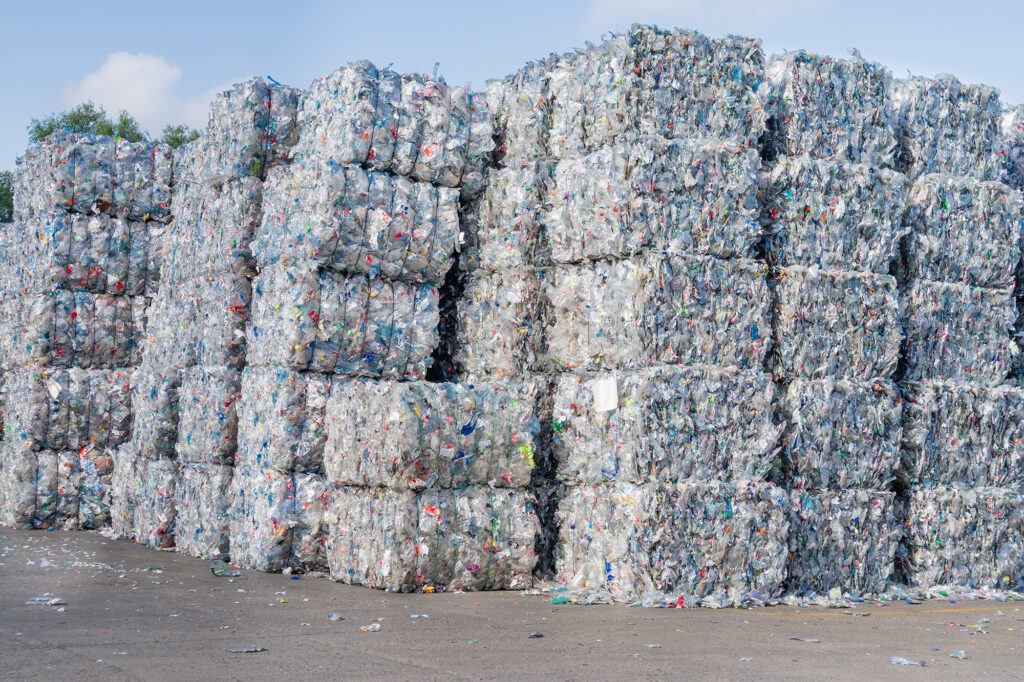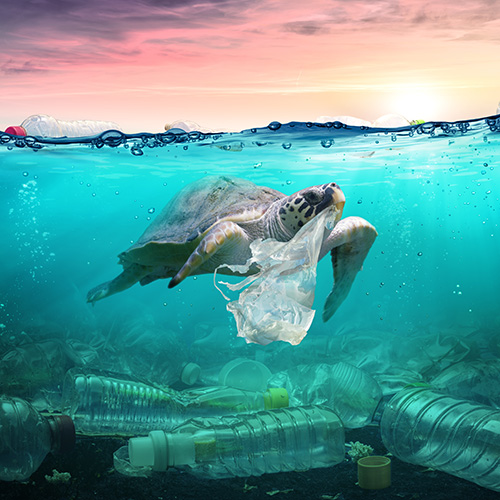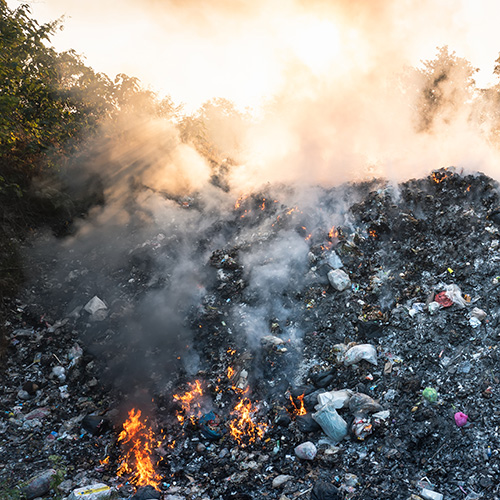Advanced recycling, also referred to as chemical recycling or molecular recycling, encompasses various technologies that claim to transform plastic waste into valuable materials or chemicals. Unlike traditional mechanical recycling, which involves melting and reprocessing plastics into lower-value products, advanced recycling methods employ chemical processes to break down the complex polymer structures of plastic waste into their basic building blocks. These building blocks can then be utilized to create new plastics, fuels, or other chemical products1.
The term “chemical recycling” encompasses two main categories of processes used in advanced recycling: plastic-to-fuel and plastic-to-chemical components1.
Plastic-to-Fuel Conversion: This category includes processes such as pyrolysis and gasification. Pyrolysis involves using high temperatures and low-oxygen conditions to thermally degrade plastic, resulting in a liquid/oil that can be refined into fuels or further processed into chemicals or new plastic. Gasification, on the other hand, uses high temperatures with air or steam to degrade plastic and produces a gas called “synthesis gas” (or “syngas”) that can be processed into fuels or chemicals1.
Plastic-to-Chemical Components: This category involves treatments such as heat and solvents to create feedstocks that proponents claim can be further processed into other chemicals or new plastics. It includes solvent-based processes, which use solvents and other chemicals to dissolve plastics and separate polymers from other components. The recovered polymers must be further processed to create new plastics. Chemical depolymerization, another method within this category, uses thermal and chemical reactions to break down the plastic polymer chain into individual units (monomers). The monomers are then recovered, purified, and can be made into new plastic1.
While the idea of converting plastic waste into valuable resources sounds promising, the underlying truth is that advanced recycling is riddled with significant concerns that extend beyond the realms of environmental impact.
The table below highlights the issues shared and unique to different “chemical recycling” technologies:
TABLE 1: ISSUES BOTH SHARED AND UNIQUE TO DIFFERENT “CHEMICAL RECYCLING” TECHNOLOGIES
| Issue | Pyrolysis, gasification | Solvent-based processes, chemical depolymerization |
|---|---|---|
| Generates large quantity of hazardous waste | X | X |
| Stores or releases hazardous chemicals on site | X | X |
| May be sited in low-income communities or communities of color | X | X |
| May encounter difficulty scaling up | X | X |
| May produce contaminated end products | X | X |
| Creates fuels whose burning generates the same harmful air pollutants as burning fossil fuels | X | |
| Has large carbon footprint | X | ? |
| Requires ongoing virgin plastic production, with its associated harms | X | X |
| May cause fires at plants due to high heat | X | |
| Exists primarily at the lab or pilot scale | X |
One of the main concerns surrounding advanced recycling is the generation of significant quantities of hazardous waste1. This poses risks to both the environment and human health. Additionally, the storage and release of hazardous chemicals on-site can further exacerbate these issues1. What is particularly troubling is the disproportionate siting of advanced recycling facilities in low-income communities or communities of color, perpetuating environmental injustices1.
Another challenge is the difficulty in scaling up these technologies to meet the demands of a large-scale plastic waste problem. Issues such as producing contaminated end products, the potential for fires due to high heat processes, and the dependence on ongoing virgin plastic production further compound the drawbacks of advanced recycling1. Additionally, the carbon footprint of these processes raises concerns about their compatibility with circular economy and zero-carbon goals1.
It is important to note that producing fuel from plastic waste, a significant aspect of advanced recycling, does not meet international standards for recycling2. Moreover, this approach perpetuates the reliance on fossil fuels and contributes to harmful air pollution and greenhouse gas emissions when burned, akin to traditional fossil fuels2.
1 Environmental Justice Atlas: Environmental Justice Impacts of Plastic Waste Recycling Plants




